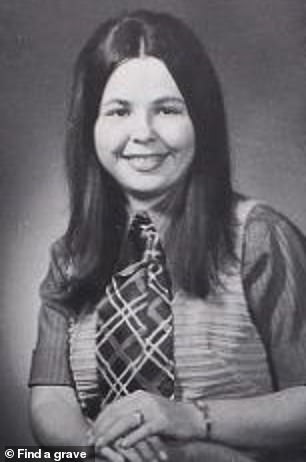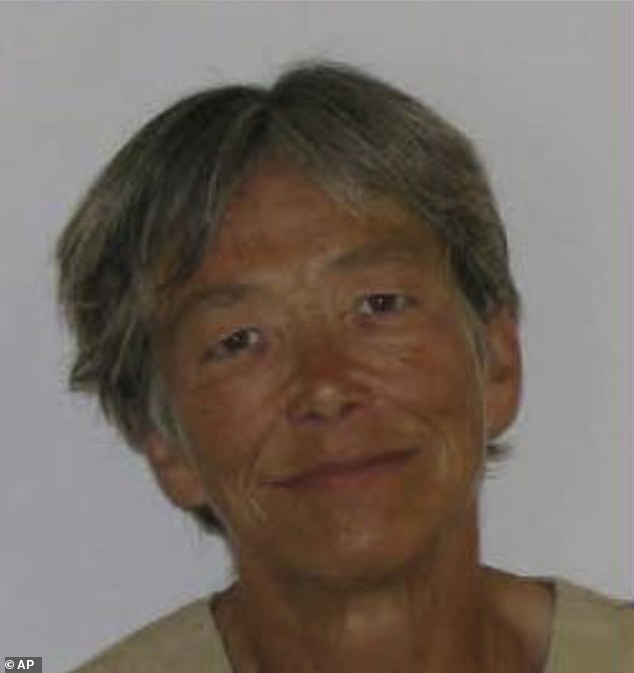America’s longest wrongly-incarcerated female prisoner Sandra Hemme hits release date snag as Missouri AG fights to keep her behind bars after judge overturned conviction
An appeals court has ordered the release of a Missouri woman recently convicted of murder after serving 43 years in prison, but state prosecutors are trying to keep her behind bars.
Sandra “Sandy” Hemme, 64, was sentenced to life in prison northeast of Kansas City in the 1980 murder of 31-year-old library worker Patricia Jeschke.
But on July 8, a panel of appeals court judges ordered her release after Judge Ryan W. Horsman found her not guilty, saying officials at the time had been coerced into making false statements.
The Missouri judge also said in his ruling last month that the wrongly accused woman must be released within 30 days unless prosecutors decide to retry her.
Sandra “Sandy” Hemme, a Missouri woman who spent 43 years in prison for murder she didn’t commit, was eventually found innocent. Hemme is seen here at one point during her imprisonment
The appeals court granted Republican Attorney General Andrew Bailey’s request to review Horsman’s decision, but in the meantime ordered Horsman to set her bail conditions and release her.
The attorney general’s office then asked the court to reconsider its decision, saying the court had not given them enough time to appeal her release.
Bailey’s office also argued that Hemme was sentenced to 12 years in prison for assault decades ago, and that she would now serve that sentence. Her lawyers responded today that keeping her in prison any longer would be a “draconian outcome.”
After an extensive investigation, Horsman concluded that Hemme was heavily anesthetized and in a “manipulable mental state” when detectives repeatedly questioned her at a psychiatric hospital at the time.


Sandra ‘Sandy’ Hemme, 63, (left) was convicted and sentenced to life imprisonment after the murder of 31-year-old Patricia Jeschke (right) in 1980
Police ignored evidence that pointed to a discredited fellow officer who died in 2015. Furthermore, the FBI findings that could have exonerated her were not disclosed to the prosecution, and were therefore never made public before her trial.
The prosecutor at her trial admitted 40 years later that there was nothing linking her to the crime other than her confession, which followed several contradictory statements, the judge noted.
Her lawyers described her eventual confession in court proceedings as “often monosyllabic answers to leading questions.”
“She is the victim of a clear injustice,” Horsman concluded in his 118-page ruling. “This court finds that the totality of the evidence supports a finding of actual innocence.

Hemme is seen here in a booking photo provided by the Missouri Department of Corrections
Hemme was arrested several weeks after the death of Jeschke, who lived in St. Joseph, Missouri.
After Jeschke failed to show up for work on November 13, 1980, her worried mother climbed through an apartment window and discovered her daughter’s naked body on the floor, covered in blood, her hands tied behind her back and a telephone cord and a pair of pantyhose wrapped around her throat. A knife lay beneath her head.
These and other details were released to the media by St. Joseph Police Chief Robert Hayes after the crime prompted a large-scale investigation.
Meanwhile, the department took only a cursory look at Michael Holman, a now-discredited St. Joseph police officer who was being investigated for insurance fraud and burglary, and ended that investigation after evidence cast doubt on his alibi. Holman’s plea agreement included a promise not to prosecute him for other “criminal matters currently under investigation.”
According to the facts established by the judge, he died in 2015.
It later transpired that Hemme had been released from the hospital and hitchhiked out of town hours before Jeschke was last seen alive, showing up that evening at her parents’ house, more than 100 miles to the east.
He is According to her legal team at the Innocence Project, she is now the longest-serving woman wrongfully imprisoned in the US.
=
